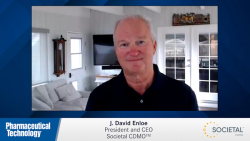
OR WAIT null SECS
- About Us
- Advertise
- Contact Us
- Editorial Info
- Editorial Advisory Board
- Do Not Sell My Personal Information
- Privacy Policy
- Terms and Conditions
© 2026 MJH Life Sciences™ , Pharmaceutical Technology - Pharma News and Development Insights. All rights reserved.
Will FDA Gain More Oversight Over Compounders?
In the wake of the meningitis outbreak caused by contaminated compounded medications produced by the New England Compounding Center (NECC).
In the wake of the meningitis outbreak caused by contaminated compounded medications produced by the New England Compounding Center (NECC), both the government and the public have been wrestling with the question of how this happened-how did a company producing substandard medicines slip through regulatory oversight?
Regulatory authority over compounding pharmacies is murky. In general, compounders are regulated by state pharmacy boards, but FDA has maintained that it can intervene when compounders exceed their role as producers of specialty doses for individual patients and engage in activities that can be construed as manufacturing. According to a background memo released by the House Energy and Commerce Committee, both FDA and the Massachusetts Board of Pharmacy were aware of problems at NECC in the years leading up to the outbreak. The memo indicates that FDA conducted three series of inspections of NECC, each based on a separate set of allegations or events, issued two Form 483s in 2002 and 2003, and issued a Warning Letter in 2006. In addition, the Massachusetts Board of Pharmacy had investigated at least twelve separate complaints concerning NECC or its president, Barry J. Cadden, issued four advisory letters and/or informal reprimands, and entered into a consent agreement with the company in 2006. By any measure, NECC was engaging in manufacturing rather than compounding, distributing tens of thousands of doses across state lines, yet FDA did not intervene, nor did the Massachusetts Board of Pharmacy, despite a long list of infractions.
This week, FDA will be called to testify before the House Energy and Commerce Committee and the Senate Committee on Health, Education, Labor and Pensions. After all the finger pointing is over, one hopes that legislators will better define the roles and responsibilities of the regulatory authorities, both state and federal, to ensure that unsafe medicines can’t slide by under the radar.


